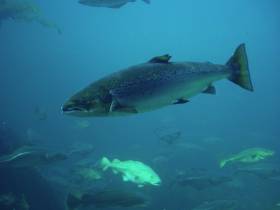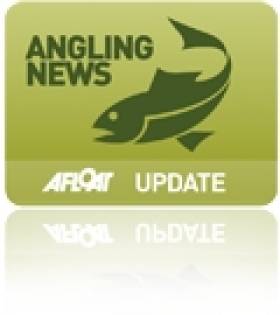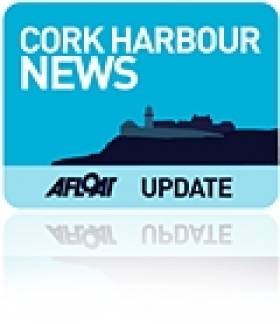Displaying items by tag: fines
Mayo Man Convicted Over Unlawfully Caught Salmon
#Angling - A Mayo man was charged with possession of eight unlawfully caught salmon at Lacken Pier on 22 July 2015 at a sitting of Ballina District Court earlier this month.
Stephen Rooney of Ballina, Co Mayo pleaded guilty to the charge and was fined €160 with costs amounting to €250.
Judge John Lindsay heard evidence that fishery officers had observed a car on Lacken Pier on the night of 21st July 2015. The officers noticed liquid oozing from the underside of the car, which they suspected to be blood and mucous from fish.
The car was kept under observation overnight, and in the morning several attempts were made to contact Rooney, its owner. The car was searched when he failed to respond, and eight fresh net-marked salmon and an undersized lobster were found in the boot.
Commenting on the case, Inland Fisheries Ireland (IFI) chief executive Dr Ciaran Byrne said: “Netting of salmon in the open sea has been illegal since 2007 as it is indiscriminate and takes fish destined for different river systems, some of which have depleted salmon stocks and are under severe pressure.
“Salmon angling is extremely valuable to the tourism industry in North Mayo and provides revenue, employment to local communities, and recreation to thousands of anglers both local and visiting from abroad and other parts of Ireland. Inland Fisheries Ireland will continue to work to protect this resource for the good of the community.”
Elsewhere, at sitting of Galway District Court on 7 June, Judge John King convicted two Galway fishermen of the non-payment of fines issued by fishery officers, and ordered a third man to pay a donation on the same charge.
Leslie Sammon, with an address at Ballinasloe, Co Galway, was before the court over non-payment of a fixed penalty notice of €150 for failing to complete a logbook upon taking a salmon from the Clare River, Claregalway last July. He was ordered to pay €200 to the RNLI by Judge King, who agreed to a donation in lieu of a conviction.
Alekseys Minkevics, with an address at Knocknacarra, Co Galway, was also summonsed in connection with an incident on the Clare River on 30 September last.
Minkevics, who failed to appear in court, had been observed fishing with live perch, in breach of fisheries legislation, and failed to pay the fine within the required timeframe.
Judge King convicted Minkevics and ordered him to pay €300, as well as €600 in costs. His fishing equipment was also ordered to be forfeited.
Viktor Buss, with an address at Headford Road, Galway was charged with a breach of a coarse fish byelaw on 5 October when he was found in possession of 32 coarse fish, eight times the legal limit. He was issued with a fixed penalty notice of €150 which he failed to pay.
Judge King recorded a conviction against Buss, who did not appear in court, and issued a fine of €300 with costs amounting to €600. His fishing equipment was also forfeited.
IFI has a confidential hotline number to enable members of the general public to report incidents - 1890 34 74 24 or 1890 FISH 24. This phone line is designed to encourage the reporting of incidents of illegal fishing, water pollution and invasive species.
NI Taxpayers Could Foot the Bill for Fines Over Dwindling Salmon Stocks
#ANGLING - Northern Ireland's taxpayers could be left with a bill for millions in EU fines if action isn't taken to reverse the decline of salmon stocks, the News Letter reports.
Ulster Unionist MLA Robin Swann said he believes that voluntary measures to help protect the North's Altantic salmon will not remove the threat of "fines which would likely run into millions which [the people of NI] will end up paying".
As previously reported on Afloat.ie, NI's Fisheries Minister Carál Ní Chuilín called on offshore anglers and commercial fishermen to forego applying for 2012 salmon licences.
Annual monitoring of the North's salmon rivers has shown a failure to reach targets most years since 2002, with the survival rate of salmon in the marine phases in some cases dropping to as little as 5%.
Coastal drift nets and bag nets off the north Antrim coast - which contravene EU directives - have been blamed for intercepting salmon stocks before they reach the rivers, and anglers and conservation groups have already called for a ban.
But Swann says that Department of Culture, Arts and Leisure (DCAL) does not yet have the legislative power to stop them.
The News Letter has more on the story HERE.
Haulbowline Toxic Waste Site Will Be Cleaned Up by 2014 Says Govt
#CORK HARBOUR - The Government has finally set a deadline for the clean-up of the toxic waste site on Haulbowline Island in Cork Harbour, under threat of massive fines from the European Commission.
RTÉ News reports that a two-and-a-half year deadline has been set to complete the sanitation of the illegal dump on the island at the site of the former Irish Steel/Ispat plant.
Some 500,000 tonnes of waste, including toxic heavy metals and cancer-causing materials, have been blamed for the area's notoriety in having one of the highest cancer rates in Ireland.
As previously reported on Afloat.ie, in October last the Government signed off on a €40m package to begin clean-up of the toxic waste site on the island.
In an editorial yesterday, the Irish Examiner welcomed the Government's decision, but emphasised it was long overdue.
"[It] cannot dispel the great frustration that it has taken so very long to do what should have been done years ago," the paper said.
"To this day nobody has explained how an illegal dump of this scale was allowed to develop on a site that is not exactly secluded, remote or out of the public eye - it is, after all, just next door to the country’s main naval base."
The Irish Examiner also reports on worries that the toxic waste may never be fully removed from the island, but rather sealed off and made impermeable.
Minister for the Marine Simon Coveney was quoted as saying: "This whole clean-up plan will be peer reviewed so it’s best practice but it could be better to contain the material onsite rather than remove it.
"We will be doing all that is reasonable to ensure the site is safe."
































































